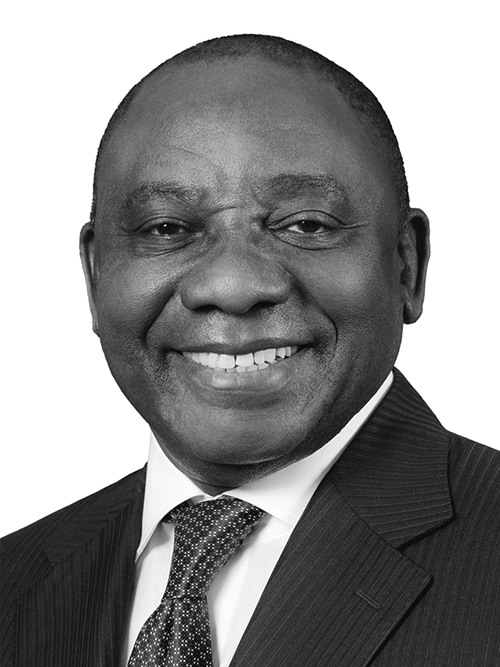Programme Director
Your Excellency, Chargé d'affaires, Mr Yap Wei Sin
Excellencies
Members of the Diplomatic Community
Distinguished Guests, Dear Friends
A good afternoon to you all.
I am pleased and proud to be speaking today on behalf of the Government and the people of the Republic of South Africa on this prestigious 68th anniversary of Malaysia’s National Day and the 62nd Malaysia Day. On this auspicious occasion, I take this opportunity to wish the Government and every citizen of Malaysia a very happy National Day. It is an honour for us as South Africans to, once more, be able to celebrate this milestone with the people of Malaysia.
I also want to make use of this opportunity to reflect on and to celebrate the strong and enduring bond between South Africa and Malaysia. Formal relations between South Africa and Malaysia were established on 8 November 1993. In the period since, our bilateral relationship, a relationship built on mutual respect, trust and a commitment to advancing the well-being of our peoples, has flourished, with growing trade, investment, and cultural exchanges.
But, more importantly, it is special occasions such as today that afford us the opportunity to stake stock of what our future relationship will look like. Given the importance that my country attaches to the Asian region in general and Malaysia specifically, it is the hope of my Government that we will continue to focus on increasing our collaborative efforts to expand our economies by fostering closer commercial ties, promoting sustainable development, combating climate change and increasing cooperation in the fields of science, technology, and innovation. And, in doing so, we will demonstrate the strategic and exceptional nature of our partnership.
Ladies and Gentlemen,
While facing global trade challenges, South Africa is proactively building a more resilient agricultural sector. We’ve made significant progress in opening up vast new markets and securing vital protocols for products like citrus and others. We are confidently expanding our reach and creating new opportunities for our agricultural producers.
Furthermore, South Africa is proactively and collaboratively diversifying our trade portfolio. Under the coordinated leadership of the Presidency, the South African Government is making significant inroads into new, high-growth markets across Asia and the Middle East. These efforts are not only opening doors to new opportunities but also reinforcing our commitment to retaining the vital markets we already have. While the current global economic environment present challenges, it also presents opportunities to build and accelerate the implementation of the African Continental Free Trade Area (AfCFTA) and to develop new partnerships in markets that have remained untapped, including ASEAN.
Distinguished Guests,
Historically marginalized and underrepresented in global decision-making processes, countries of the Global South face unique challenges ranging from economic disparities to environmental vulnerabilities. Also, in this context Malaysia has been a valuable partner for South Africa and we appreciate the solidarity and support we have received on various multilateral platforms.
It comes therefore as no surprise that the objectives for South Africa’s G20 Chairship and Malaysia's Association of Southeast Asian Nations (ASEAN) Chairship share a number of similarities such as the promotion of inclusivity and sustainable development, particularly for the Global South. Furthermore, both presidencies aim to strengthen regional and international cooperation, address global challenges by amplifying the voices of developing nations, address geopolitical tensions and promote a more equitable world order.
Your Excellency, Ladies and Gentlemen,
As we reflect on the bond between South Africa and Malaysia, we find that despite our geographical differences, we share a rich tapestry of similarities. Both our nations are melting pots of diverse cultures, languages, and traditions, where hospitality and respect for heritage are deeply ingrained.
We prioritize family and community, and our resilience in the face of challenges is a testament to our strength. Our economies, though distinct, share commonalities as emerging markets rich in natural resources. And, our histories, shaped by colonial experiences, have forged in us a deep appreciation for our unique identities.
Today, as we celebrate Malaysia’s National Day and Malaysia Day, let us pledge to continue to build the bonds of friendship and solidarity in such a way that both our countries, as well as the regions we find ourselves in, will reap the benefits of our collaboration, not only now but in years to come.
Please join me now in a toast to the good health and well-being of His Majesty, Sultan Ibrahim, the Yang di-Pertuan Agong and for continued progress and growth in Malaysia and South Africa, for the prosperity of our people, and for a continuation of the excellent bilateral relations between our two countries.
Thank you.








